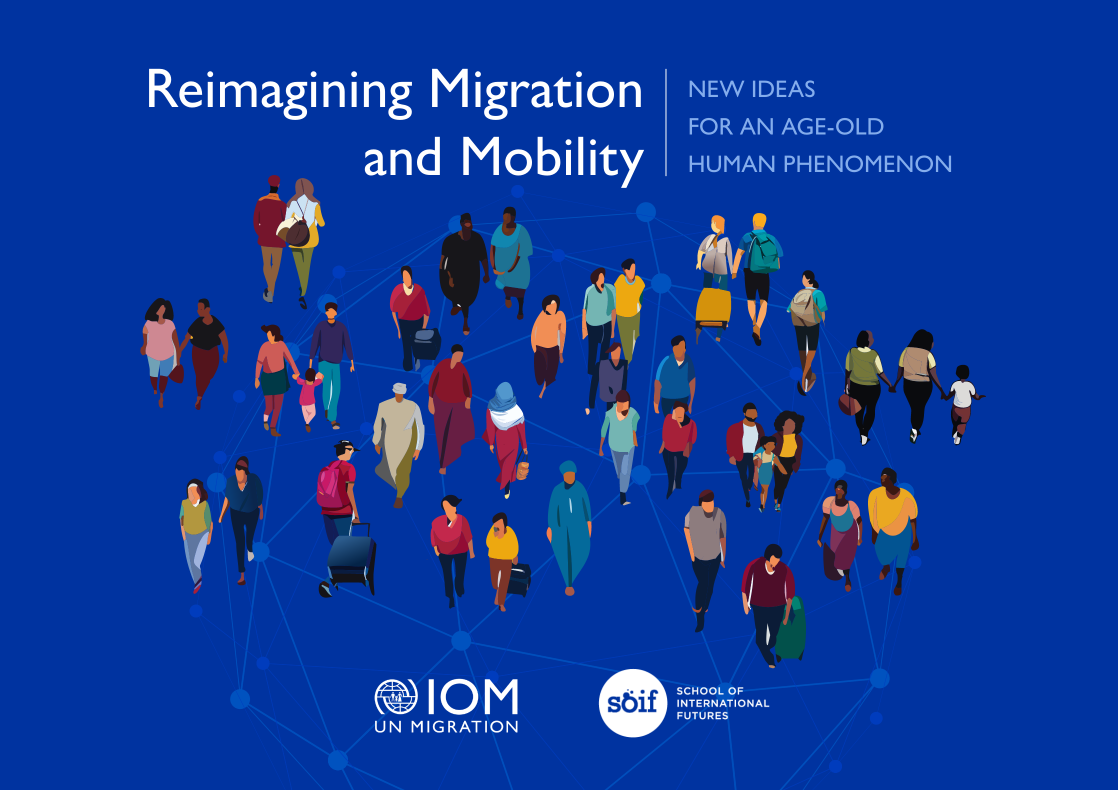Week 25 / 2024

Greetings from midsommar, a day which—as far as I can tell—matters more to most Swedes than Christmas. As a long-time fan of sunshine and warmth, I can dig it... though I'll pass on the pickled herring, thanks.
This week has been dominated by finishing the first-draft stories for the latest Media Evolution foresight cycle, and a rear-guard action on a bunch of admyn and popcorn tasks that fell by the wayside when I lowered the 'scope and switched to silent running.
Tomorrow morning, I get on the first of three trains which will take me to Bergen, Norway, where I'll be running workshops for PROJECT TEMPORAL next week.
One Big Thing
I've mentioned this in passing before, but busyness has kept me from dropping it properly, so here we go: a report I edited and co-wrote (with Iman Bashir and Andrew Curry) under the aegis of SOIF and on behalf of the International Organisation for Migration has been published!

Aside from the reliable pleasure of working with SOIF, it was a particular privilege to work on this report. Even for those of us who try to work at the other end of it, futures and foresight is an industry strongly affected by fads, fashions and trends, which means you can end up spending a lot of time looking into topics that you don't really think merit the attention. (Yes, "artificial intelligence, I'm looking at you.)
So to be asked to work on a topic like migration and mobility—which matters in the present, but which will also be profoundly impactful on the years ahead of us—is a wonderful thing. Plus you get to learn new things by talking to smart people, reading interesting sources, and writing about what you've heard and read... and honestly, it doesn't get much better than that, as far as earning a living is concerned.
The report is free to download, and was commissioned as IOM's contribution to this year's United Nations Summit of the Future. Notes on methodology can be found in the report itself!
One Small Thing
It's interesting how different versions of a text in different media can end up being conflated into one another in my memories. I'm currently (re)reading Philip K Dick's A Scanner Darkly, and I can't help but picture the scenes as I read them in the rotoscoped style of the mid-Noughties movie adaptation.
This is particularly noticable because I don't often visualise scenes from books as I read, so I assume that when I do so, it's due to particularly good writing. I don't recall visualising A Scanner Darkly the first time I read it—Dick's titanic status in sf is justly deserved, but it's not on the basis of his descriptive prose! But then again, I don't recall reading it at all. I know I must have, because there are scenes in the book that didn't make it into the movie, and I'm remembering them as I encounter them on the page. But I'm seeing those scenes in rotoscope, too!
I'm tempted to indulge some appropriately Dickean riff on the possibility of my memories having been mediated many times over by time, surveillance and psychedelic substances... but given how those very reflexive flights of fantasy worked out for the man himself, I think I'll skip it. A Scanner Darkly is a powerful novel, but it's also a clear indication of just how close to the line Dick skated, and for how long.
(Because after a while, as the man said, the abyss starts staring back...)
A Clipping
This week's clipping is a fairly long but very rewarding essay at Harper's by Alan Jacobs.
My work is powered by a devotion to story and narrative as technologies of sociotechnical transformation: I sometimes say that my research is about "how the stories we tell about times yet to come shape the lives we end up living". That means I'm interested in the mythic substructure of culture as a futurist, not just as a reader and writer of fiction.
Jacobs's essay is a brief history of how a mythical view of culture came into and fell out of fashion, academically and otherwise, as well as an argument for why it's high time it returned:
Though the study of myth emerged from the discovery of cultural diversity, the mythical method of the twentieth century arose from a desperate hope to bridge the chasms of hatred and fear that separate humans from one another. Fact and argument alone cannot build forbearance and charity across racial and cultural and sexual boundaries; this requires image and event, the visualizable and the narratable, picture and story. One can see that the attempt failed while admitting and even embracing its nobility.
Have we lost the knack or the appetite for such stories? For tales of wounds that do not heal, kings who sacrifice themselves for the good of the people, slaves who are really princes, peasants whose generosity is known to the gods—and gods who die and are born again? Perhaps. But it was not so long ago that some of our best writers were drawn to them. A knack lost may yet be regained.
This has been the Worldbuilding Agency weeknotes for Week 25 of 2024. Thanks for reading! If you've enjoyed them, it's free to subscribe, but please consider supporting this research journal with a small monthly payment—you'll get access to the occasional bit of Exclusive Content ™️, and you'll be funding free subscriptions for those with fewer monetary resources, but first and foremost you'll get the warm glow that only ever comes from enabling fully independent and climate-focussed foresight research to continue.
(If you are already subscribed, please send to a friend who you think might also like it!)
Have a good weekend.





Comments ()